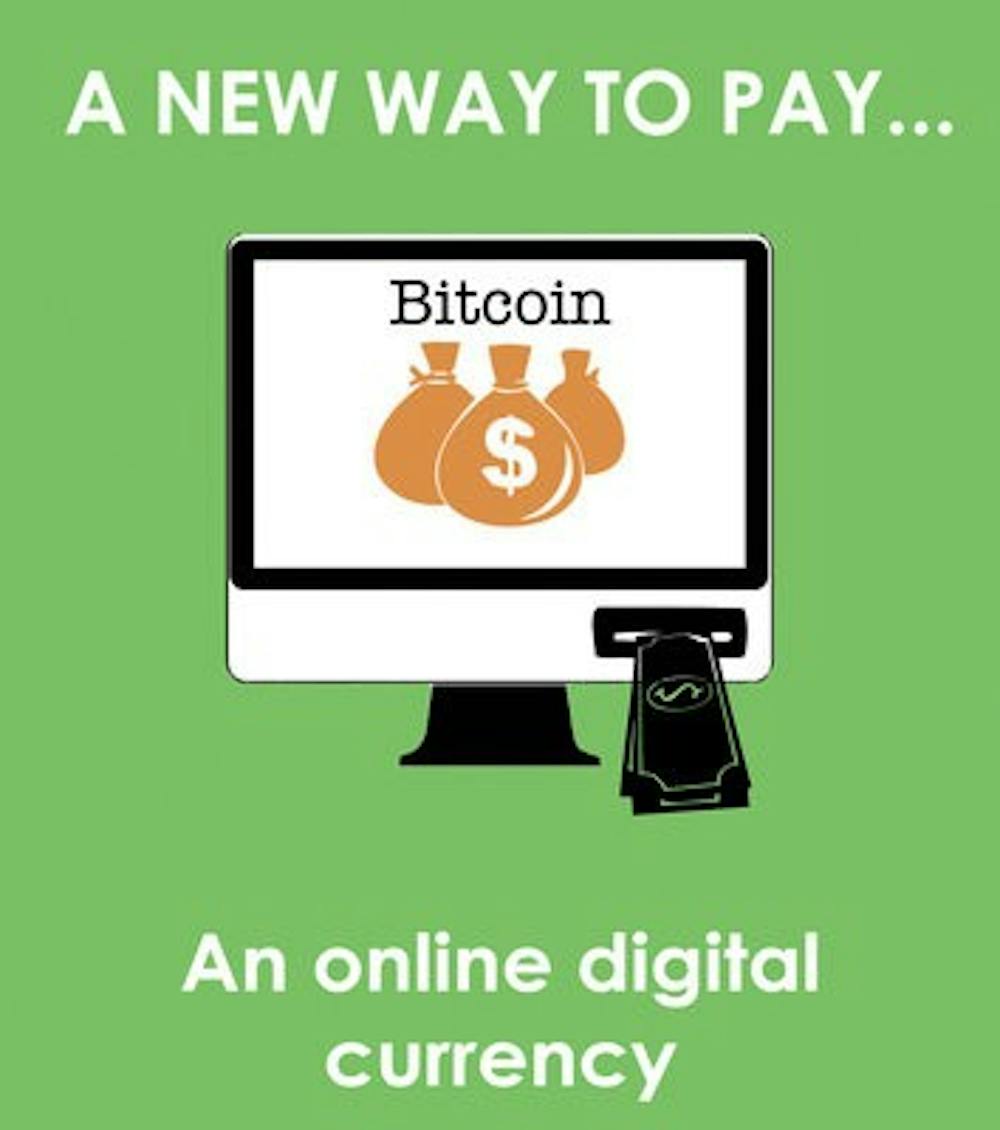There is a new currency gaining popularity in today's market. Bitcoin is a virtual currency that uses peer-to-peer technology to operate.
Bitcoin has no government regulations or middlemen, such as banks, unlike traditional method of payments.
According to CNN Money, Bitcoin was created in 2009 by an unknown individual using the alias Satoshi Nakamoto.
It provides consumers means to purchase goods anonymously. The currency is held in a digital wallet in a cloud or user computer.
Bitcoins can be bought from other users or mined by running certain computer programs. These programs require large amounts of storage space to be able to run and operate.
"For small items, people will trade one-tenth of a thousandth of Bitcoins for maybe $5," said PJ Robin, freshman in computer engineering. "There are applications called Bitcoin miners, where you run an application on your computer and you literally create Bitcoins, but the data are so massively large, if I tried to mine it on my computer, I could make maybe five one-millionths of a Bitcoin per day."
The current exchange rate for the Bitcoin is at $509.70 per Bitcoin.
Although Bitcoin was originally predicted to vanish on its own, Reuters reports Overstock.com and Expedia accept it.
"It's accepted in a lot of places that aren't heavily commercial, like video game websites, some trading websites, such as illegal ones, like Silk Road, and websites that are accessed through TOR client," Robin said.
Jeremy Frasher, sophomore in electrical engineering, also said a con of bitcoins is the energy it takes to mine them.
"You can't just build a super computer and run it and expect to make money off of it," Frasher said. "What will happen is, at universities, like here, TAs, professors or people who have access to labs will have a computer with it and run it, leave it sitting there mining and they won't get a power bill."
Frasher and Robin added they would make little money even in this scenario.
Bitcoins aren't federally insured like dollars, and have even been banned in some countries because of their lack of regulation.
"I'm not a technology person, and I prefer my bank, so I don't think Bitcoins are a better alternative for me," said Erin Ledford, senior in mathematics. "I just don't think I can put much stock in money I can't see, even if anonymity has its perks."
Do you like this story? The Plainsman doesn't accept money from tuition or student fees, and we don't charge a subscription fee. But you can donate to support The Plainsman.




